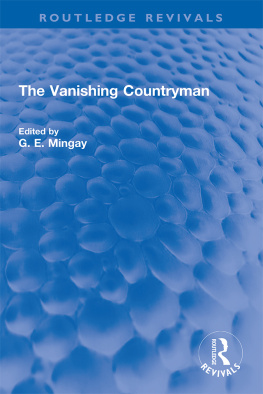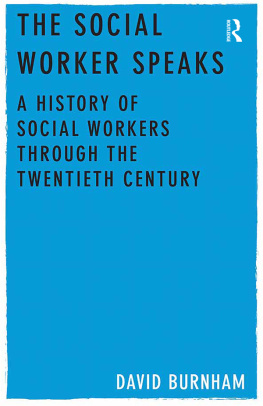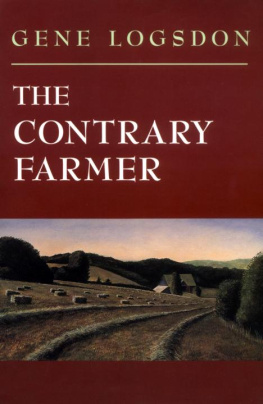The Vanishing Countryman
Routledge Revivals
First published in 1989, The Vanishing Countryman investigates how farmers, farm workers, and other country crafts- and tradespeople have fared in response to significant changes across the British countryside in the past one hundred years.
The book explores the move towards large-scale and capital-intensive farming, and the conflict between increased production and damage to the environment. It looks at the decline in the number of farm workers, craftsand tradespeople. It also considers the changes in social composition across country villages and the impact that this has had on living standards, housing, and transport.
The Vanishing Countryman will appeal to those with an interest in rural and social history, and in the history of the British countryside specifically.
The Vanishing Countryman
Edited byG.E.Mingay

First published in 1989
by Routledge
This edition first published in 2020 by Routledge
2 Park Square, Milton Park, Abingdon, Oxon, OX14 4RN
and by Routledge
605 Third Avenue, New York, NY 10017
Routledge is an imprint of the Taylor & Francis Group, an informa business
1989 G. E. Mingay
All rights reserved. No part of this book may be reprinted or reproduced or utilised in any form or by any electronic, mechanical, or other means, now known or hereafter invented, including photocopying and recording, or in any information storage or retrieval system, without permission in writing from the publishers.
Publisher's Note
The publisher has gone to great lengths to ensure the quality of this reprint but points out that some imperfections in the original copies may be apparent.
Disclaimer
The publisher has made every effort to trace copyright holders and welcomes correspondence from those they have been unable to contact.
ISBN 13: 978-0-367-65422-1 (hbk)
ISBN 13: 978-1-003-12936-3 (ebk)
The Vanishing Countryman
Edited by
G. E. Mingay

First published 1989
by Routledge
11 New Fetter Lane, London EC4P 4EE
1989 G. E. Mingay
Typeset in 10/12 pt Times Linotron 202
by Input Typesetting Ltd. London
All rights reserved. No part of this book may be reprinted or reproduced or utilized in any form or by any electronic, mechanical, or other means, now known or hereafter invented, including photocopying
and recording, or in any information storage or retrieval system, without permission in writing from the publishers.
British Library Cataloguing in Publication Data
The Vanishing countryman
1. Great Britain. Rural regions. Social life, history
I. Mingay, G. E. (Gordon Edmund) 1923
941'.009'734
ISBN 0-415-03429-9
Contents
G. E. Mingay
1 The Victorian farmer
B. A. Holdemess
2 The workfolk
W. A. Armstrong
3 In the sweat of thy face: the labourer and work
Alun Howkins
4 The flight from the land
W. A. Armstrong
5 Rural culture
Charles Phythian-Adams
6 Voices from the past: rural Kent at the close of an era
Michael Winstanley
7 The farmers in the twentieth century
B. A. Holdemess
8 The most despised craftsmen: farmworkers in the twentieth century
W. A. Armstrong
9 The decline of the country craftsmen and tradesmen
C. W. Chalklin
10 The new culture of the countryside
Michael Winstanley
- 1 The Victorian farmer
- 2 The workfolk
- 3 In the sweat of thy face: the labourer and work
- 4 The flight from the land
- 5 Rural culture
- 6 Voices from the past: rural Kent at the close of an era
- 7 The farmers in the twentieth century
- 8 The most despised craftsmen: farmworkers in the twentieth century
- 9 The decline of the country craftsmen and tradesmen
- 10 The new culture of the countryside
Guide
W. A. Armstrong, Professor of Economic and Social History, University of Kent at Canterbury
C. W. Chalklin, Reader in History, University of Reading
B. A. Holderness, Reader in Economic and Social History, University of East Anglia
Alun Howkins, Lecturer in Modern History, University of Sussex
G. E. Mingay, Emeritus Professor of Agrarian History, University of Kent at Canterbury
Charles Phythian-Adams. Head of the Department of English Local History, and Senior Lecturer, University of Leicester
Michael Winstanley, Lecturer in History, University of Lancaster
, appear here for the first time and have been specially commissioned for this volume.
One hundred and fifty years ago the rural community still accounted for about half the population of England - a surprisingly large proportion if the rapid growth of machine industry at that time, together with the irruption of Cobbett's detested wens, are taken into account. But from the mid nineteenth century the share of the countryside weakened rapidly, and already by 1880 the towns were able to boast twice as many people. In 1850, with the farm labour force at its peak, agriculture was still by far the largest single source of employment, and together with horticulture and forestry it supported over 2 million men and women. But even in 1850 this figure represented, as a proportion, only just over a fifth of the total labour force; and by the beginning of the twentieth century the 1.5 million then employed accounted for only one in every eleven of the employed population. The importance of agriculture continued to decline, though the fall in the absolute numbers is confused by the growing use made of part-time farmworkers. As a proportion of the total employment figures, agriculture steadily shrank to rank as only a minor employer, and came in the later decades of the twentieth century to make up only 2 per cent or less of the whole.
More recently, agriculture has come to be dominated by the owners of agricultural capital and employers of labour, the farmers. The farm-workers, still vital for their muscles and their knowledge, have in one sense declined relatively in importance as their numbers have fallen; on the other hand, those that remain have gained in standing as livestock and machinery have come to dominate farming systems, making skilled men key figures in the production processes. However, the third main element of the former tripartite structure, the landowners, have to a large extent disappeared as their estates have been broken up; and. as a result, well over half the farmland has come to be owned by its occupiers. Where landowners remain, their traditional role of leadership and management has declined with the modern restrictions on farm tenure and the growth of the tenants' economic and political independence.
The essays in this book are largely concerned with the first two elements, the farmers and their workpeople, but they also consider how the country way of life has changed beyond recognition over the past hundred years. The landowners, whose hegemony has been greatly undermined, not to say overthrown, during the same hundred years, have been over recent decades the subject of a number of specialized and well-known studies, and it has not been felt necessary or desirable to attempt to treat them afresh in the limited space of the present work. Nevertheless, it has to be remembered that up to the time of the First World War they were still a significant, even in some areas a dominant, force in determining the way in which farming was carried on, the use made of land, and the social life of a great many rural communities, though certainly not all.












